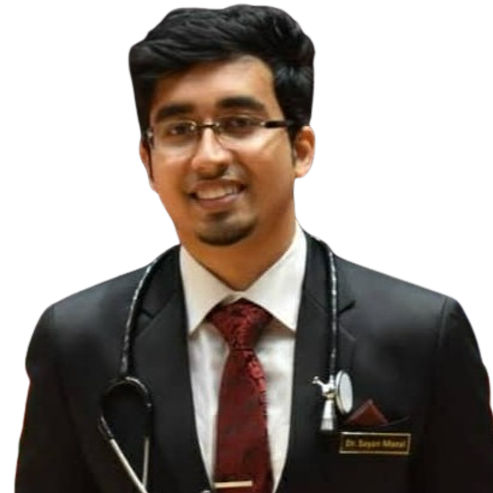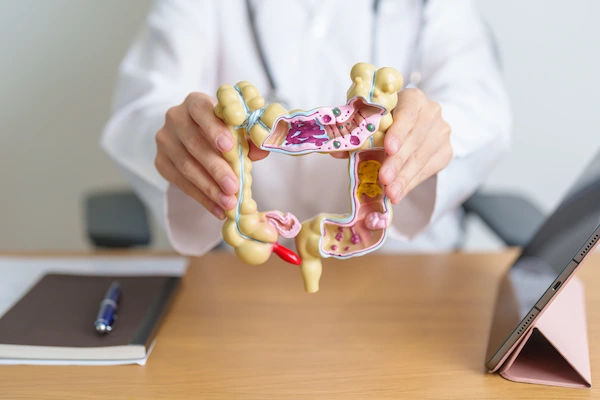Understanding ECMO Treatment and Its Uses
Learn how ECMO treatment supports patients with severe heart or lung failure. Understand its types, uses, risks, and what to expect during recovery from this life-saving therapy.

Written by Dr. Rohinipriyanka Pondugula
Reviewed by Dr. Shaik Abdul Kalam MD (Physician)
Last updated on 20th Aug, 2025

When someone’s heart or lungs are severely damaged and can’t function properly, doctors may use a life-saving treatment called Extracorporeal Membrane Oxygenation (ECMO). This advanced therapy acts as an artificial heart and lungs, providing oxygen to the blood and removing carbon dioxide when the body can’t do it on its own.
While ECMO is a complex medical procedure, understanding its basics can help patients and families make informed decisions during critical health situations.
What is ECMO?
ECMO is a machine that temporarily takes over the work of the heart and lungs, allowing these organs to rest and recover. It works by:
- Drawing blood from the body.
- Removing carbon dioxide and adding oxygen (like artificial lungs).
- Pumping the oxygen-rich blood back into the body (like an artificial heart).
This treatment is typically used in severe cases, such as:
- Heart failure after a major heart attack.
- Severe lung damage from infections like pneumonia or COVID-19.
- Complications during heart surgery.
- Awaiting a heart or lung transplant.
Types of ECMO
There are two main types of ECMO, depending on which organs need support:
- Venovenous (VV) ECMO – Supports only the lungs. Blood is taken from a vein, oxygenated, and returned to another vein.
- Venoarterial (VA) ECMO – Supports both the heart and lungs. Blood is taken from a vein, oxygenated, and pumped into an artery.
When is ECMO Needed?
ECMO is not the first treatment option—it’s used when other treatments (like ventilators or medications) fail. Doctors may recommend ECMO for:
- Severe respiratory failure (when lungs can’t provide enough oxygen).
- Cardiac arrest or shock (when the heart can’t pump blood effectively).
- Poisoning or severe infections affecting the heart/lungs.
- Bridge to transplant (keeping a patient stable until a donor organ is available).
How Does ECMO Help?
ECMO gives the body time to heal by:
- Providing oxygen when lungs fail.
- Supporting blood circulation when the heart is weak.
- Reducing strain on damaged organs.
However, ECMO is not a cure—it’s a temporary support system while doctors treat the underlying condition.
Risks and Challenges
While ECMO can be life-saving, it also has risks, including:
- Bleeding (due to blood thinners used to prevent clots).
- Infections (since tubes are inserted into blood vessels).
- Blood clots (which can travel to vital organs).
- Organ damage (if blood flow is disrupted).
Doctors carefully monitor patients to minimize these risks.
Recovery and Life After ECMO
Recovery depends on the underlying condition. Some patients improve within days, while others need weeks of support.
After ECMO removal, patients may require:
- Rehabilitation to regain strength.
- Ongoing treatment for heart/lung conditions.
- Follow-up tests to monitor recovery.
Consult Top Specialists
Can ECMO Be Used for Everyone?
Not all patients are eligible. Doctors consider factors like:
- Overall health condition.
- Chances of recovery.
- Underlying diseases (e.g., advanced cancer may limit benefits).
How Can You Support a Loved One on ECMO?
If someone you know is on ECMO:
- Stay informed – Ask doctors about progress and next steps.
- Be patient – Recovery can take time.
- Follow medical advice – Ensure post-ECMO care is followed strictly.
When to Seek Help
If you or a loved one has severe breathing difficulties, chest pain, or sudden weakness, seek emergency care immediately. Early intervention can prevent the need for ECMO.
Final Thoughts
ECMO is a remarkable medical technology that saves lives when the heart and lungs are failing. While it comes with risks, it offers hope for recovery in critical situations. If you have concerns about heart or lung health, consult a specialist to explore preventive care options.
Need Expert Advice?
If you or a loved one is facing severe heart or lung conditions, consult an Apollo specialist today. Book an appointment via Apollo 24|7 for expert guidance and advanced treatment options.
Consult Top Specialists
Consult Top Specialists

Dr. Syed Ismail Ali
General Practitioner
7 Years • MBBS
Hyderabad
Apollo 24|7 Clinic, Hyderabad

Dr Syed Mateen Pasha
General Physician
2 Years • MBBS
Bengaluru
PRESTIGE SHANTHINIKETAN - SOCIETY CLINIC, Bengaluru

Dr. Madhuri Sai Sreepada
General Practitioner
9 Years • MBBS
Hyderabad
BRIGHT SMILES MEDICARE & DENTAL CARE, Hyderabad
Dr. Karanam Kondalamma
General Practitioner
4 Years • MBBS
Hyderabad
KK Clinic, Hyderabad

Dr. Sayan Prakash Moral
General Practitioner
4 Years • MBBS
Kolkata
SSKM Hospital, Kolkata
Consult Top Specialists

Dr. Syed Ismail Ali
General Practitioner
7 Years • MBBS
Hyderabad
Apollo 24|7 Clinic, Hyderabad

Dr Syed Mateen Pasha
General Physician
2 Years • MBBS
Bengaluru
PRESTIGE SHANTHINIKETAN - SOCIETY CLINIC, Bengaluru

Dr. Madhuri Sai Sreepada
General Practitioner
9 Years • MBBS
Hyderabad
BRIGHT SMILES MEDICARE & DENTAL CARE, Hyderabad
Dr. Karanam Kondalamma
General Practitioner
4 Years • MBBS
Hyderabad
KK Clinic, Hyderabad

Dr. Sayan Prakash Moral
General Practitioner
4 Years • MBBS
Kolkata
SSKM Hospital, Kolkata




